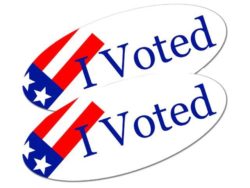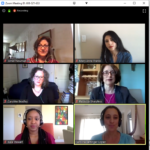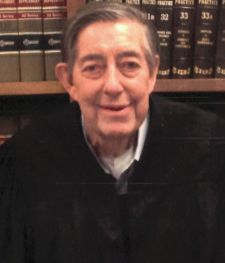 This is the last installment of my three-part Miami-Dade voters’ guide for the November 2020 election. This part concerns the very important proposed amendments to the Florida Constitution, and also three Miami-Dade charter Amendments. It follows on the heels of my Voters’ Guide to the November 2020 Miami-Dade Ballot, Part I — The Easy Part and Voters’ Guide to the November 2020 Miami-Dade Ballot, Part II: Judicial Retention Elections. There’s also a handy summary.
This is the last installment of my three-part Miami-Dade voters’ guide for the November 2020 election. This part concerns the very important proposed amendments to the Florida Constitution, and also three Miami-Dade charter Amendments. It follows on the heels of my Voters’ Guide to the November 2020 Miami-Dade Ballot, Part I — The Easy Part and Voters’ Guide to the November 2020 Miami-Dade Ballot, Part II: Judicial Retention Elections. There’s also a handy summary.
Florida Constitutional Amendments
There are six Florida Constitutional Amendments on our November 2020 ballot. They run the range from cynical to evil and then (in one case) back to good. I’ve taken them in the order they appear on the ballot; links are to the full text of the Amendments, not the ballot summaries:
Amendment 1
Amendment 1 – Citizenship & Age – NO – line 201
This amendment changes two words in the state Constitution: “Every citizen” over 18 may vote is replaced with “Only a” citizen over 18 may vote in a Florida election. There are two problems with Amendment 1. The first is that it is solving a non-problem: that is already the law, and there are no plans that I know of at either the state or local level in Florida to change it. The entire purpose of the amendment is a cynical ploy to get nativists to the polls. This should not be encouraged, and that’s why we should vote NO. Just to be clear here: a NO vote will not make the requirement to vote anything other than what it is already: 18 years old and a citizen. Amendment 1–whether it passes or fails–will have no effect on current law whatsoever.
All that said, there is another subtler reason to vote against this amendment. Some jurisdictions around the world are experimenting with letting 16-year-olds vote, either in municipal elections or more generally. There have been some suggestions in Congress and elsewhere that maybe if you are old enough to drive a death machine – a car – then maybe we should trust you to vote also. I don’t see why we should strangle those ideas before they have a chance to be debated. The old wording would permit such experiments; the new wording will not.
Amendment 2
Amendment 2 – Raise Minimum Wage – YES – line 202
Amendment 2 raises the state minimum wage to $10 effective about a year from now, and a dollar a year thereafter until it hits $15 a year. It is currently $8.56 at the state level, which is higher than the federal minimum.
In principle I don’t think this is the sort of thing we should put in the State Constitution. Suppose, for example, there were a major depression and the entire price and wage level cratered. Having the minimum wage be this inflexible, beyond legislative adjustment in economic emergencies, doesn’t seem like a smart move. On the other hand, our legislature is so hopelessly gerrymandered that even though Florida is the classic 50/50 state, both houses have large GOP majorities, and they have no interest at all in helping working people. So if we are going to get a living wage, it’s this or federal action. Since we can’t count on federal action, it’s this.
We don’t live in a perfect world, and given its imperfections amendments like this are pretty much the only way we get anything progressive at the state level in Florida these days. So I’m voting YES.
Amendment 3
Amendment 3 – Jungle Primary – NO – line 205.
Amendment 3 would abolish the primary system as we know it for races for Governor, Cabinet, and both houses of the legislature. Currently, we are a ‘closed primary’ state: voters have until about a month before the election to register and (optionally) select a party affiliation. If already registered, voters can change party affiliation any time before the close of the registration period. Everyone votes the same in the general election, and also for ‘non-partisan’ offices such as Miami-Dade County Mayor. But for Governor and legislature, only Democrats vote in the Democratic primary, and only Republicans vote in the Republican primary, and so too for any other qualifying party.
The (alleged) case for Amendment 3 is that it fixes the following problem: In many legislative districts—particularly in this age of gerrymandering–the real battle is in a party primary and whoever wins the nomination in the party that dominates the area then cruises to victory, and that disenfranchises independent (no-party) registrants, who only get to vote in the less meaningful general election. A stronger form of the argument says that even for statewide offices, it’s wrong to keep non-party members from having a say as to who ends up on the general election ballot. Why not let everyone vote in one big (so-called “jungle” primary)?
To begin with, let me point out that the amendment isn’t even congruent with the problem it most plausibly claims to solve, as it covers “all elections for the Florida legislature, governor and cabinet”. To the extent the biggest problem exists, it’s legislative and local, not statewide. Why then undermine the parties at the state level?
To ask the question is to answer it: this is an attempt to undermine parties—especially the Democratic party—at the state level. An ‘open,’ ‘single’, or ‘jungle’ (as it’s best known) primary means that it is easier to split the vote for less organized parties – like Democrats. Worse—much worse—the jungle primary empowers extremists.
Another point: it is very easy to change one’s party registration tactically, up to a month before the election. If non-party voters strongly want to support a candidate in a primary, it’s quite easy to join the party to vote in it, and then change one’s registration back afterwards. There is no limit, in fact, on the number of switches a voter is allowed. So the plight of the no-party voter is actually within that voter’s power to cure, with only a little effort.
As I’ve argued previously, the best solution to all these problems would be to use ‘instant run-off voting’, but alas that’s not on offer. Meanwhile, no point in making things worse!
Not convinced yet? Here’s another very serious problem with the proposal. Under this plan, the two candidates with the highest vote totals go to a run-off. That opens the door to extremist candidates in a multi-candidate election. Let’s suppose, for the sake of the argument that there are four credible Democrats, and four credible republicans in the race, but that 15% of the electorate that supports an extremist – think of it as the Q-Anon, Trotskyite, or Proud Boys candidate as you wish. Assume also that all the Democrats voting would prefer any of their four candidates to any of the five others, and assume the same thing about the Republicans. Assume also that all non-extremist voters prefer anyone to the extremist.
Depending on how the votes fall out among either of the parties, it’s possible that each of their candidates will get less than 15% personally – opening the door for the extremist to go into the run-off against one of the major party candidates, when the electorate would have much rather had a choice between two of them. Indeed if we assume that one of the major parties is bigger than the other, but the smaller party is less disunited, it’s possible that the smaller party candidate ends up facing the extremist in the run-off, when in fact a majority of the electorate would have preferred any of the candidates from the more splintered (read, usually, “Democratic”) party.
So – NO – on Amendment 3.
Amendment 4
Amendment 4 – Require 2 ballots for future amendments – NO – line 207
The secret to decoding what is going on here is to understand that although the people of Florida are pretty much 50/50 in terms of party preference, on a number of individual issues – like health care, marijuana decriminalization, felon rights, or the minimum wage – the state skews strongly towards the so-called ‘liberal’ position (I’m actually not sure that’s a correct description of voting rights or decriminalization in theoretical terms, that’s how politicians see the issues since they are supported by the Democratic party and opposed by Republicans.)
Our legislature, however, is expertly gerrymandered to bake in a large, strong, Republican majority. And, to be fair, the state democratic party is in the main spineless and deeply incompetent. The one way that we get anything progressive in this state – like the small class-size rule, or the felon enfranchisement, or (this year) an increase in the minimum wage – is by getting it on the ballot for a Florida Constitutional Amendment. That is far from ideal, but needs must. The state already raised the requirements for getting amendments passed a few years ago, but that only dented and did not extinguish the progressive use this last-ditch method of achieving popular social goals. So here comes the state GOP again with another proposal to make popular change even more difficult.
Amendment 4 would require an issue (such as restoration of felons rights) to be on the ballot twice and get 60% of all Floridians to vote “yes” in two separate elections in order to pass. As each ballot campaign takes years and a lot of money this will inevitably undermine grassroots initiatives by increasing the amount of effort and money needed to pass a constitutional amendment. In effect, it will mean that groups with a lot of money would be able to amend the Florida Constitution. And it will make progressive change like the small class size requirement and former felon voting rights that much harder to achieve.
Vote NO on Amendment 4.
Amendment 5
Amendment 5 – Extend time for ‘Save-our-homes’ carryover – Yes – line 208 (corrected)
This is, frankly, a low-stakes amendment. In normal times I’d be against it on the grounds that its goals could be achieved by legislation. I wouldn’t blame anyone who voted against this minor raid on local government tax revenues. But in a year of COIVD, where everything is difficult, it’s hard to be against a rule that extends the time for rolling over homestead exemptions.
I’m voting YES on Amendment 5 (but feel free to vote NO if you are a purist).
Amendment 6
Amendment 6 – Extend homestead exemption for spouses of deceased disabled veterans – NO – line 211
This one is just silly. We’re talking about a tiny group of people—widows and widowers of disabled veterans. There just isn’t any point to putting this sort of thing in the Florida Constitution. It belongs in legislation.
Vote NO on Amendment 6. But go ahead and vote for it if you want to encourage the legislature to push more stuff like this in front of voters.
Miami-Dade Charter Amendments
Referendum 1 – Create office of Inspector General – Yes – line 212
Given the Augean Stables of corruption that is Miami-Dade, having an independent Inspector General cannot hurt, although I’m not deeply optimistic about how much it will help, either. I’m voting YES.
Referendum 2 – Delay elections to replace ‘resign to run’ officials to general election – Yes – line 214
There really are two sides to this one. The case for Ref 2 is that when politicians resign to run for other office, as required by Florida state law, the resulting special election to fill their seats is costly, participation is often poor, and the resulting term is usually quite short. So it’s not value for money.
The case against Ref 2 is that it means the office(s) in question will be vacant longer, leaving the constituency without the representation to which it is entitled.
You really could go either way on this one. On balance, I think the savings outweigh the democratic gains, especially given the fact that turnout is often very light in special elections. So I’m voting Yes; I wouldn’t blame anyone who voted No.
Referendum 3 – Nonpartisan election of Sheriff, Appraiser, etc – No – 217
This is, to me, the most important of the three referendum questions. Basically, what it does is force the equivalent of a jungle primary (see discussion of Constitutional Amendment 3 above) on major local offices not covered by the Amendment. The only practical difference is that while the Amendment would allow parties to endorse and candidates to state party affiliations on the ballot, this charter amendment would not even do that.
Again, I would be fine with a ‘non-partisan’ ballot if it were organized in a way that didn’t open the door to fringe candidates squeaking through to the run-off or various other machinations that could fail to reflect what people actually want. The way to do that is to follow the State of Maine’s example and use ranked-choice voting. But this is a step backwards, not forwards.

 This is the last installment of my three-part Miami-Dade voters’ guide for the November 2020 election. This part concerns the very important proposed amendments to the Florida Constitution, and also three Miami-Dade charter Amendments. It follows on the heels of my
This is the last installment of my three-part Miami-Dade voters’ guide for the November 2020 election. This part concerns the very important proposed amendments to the Florida Constitution, and also three Miami-Dade charter Amendments. It follows on the heels of my  You can now
You can now 
